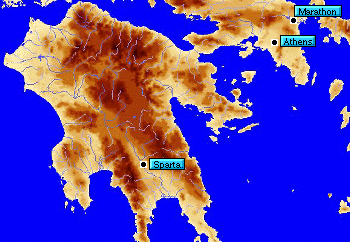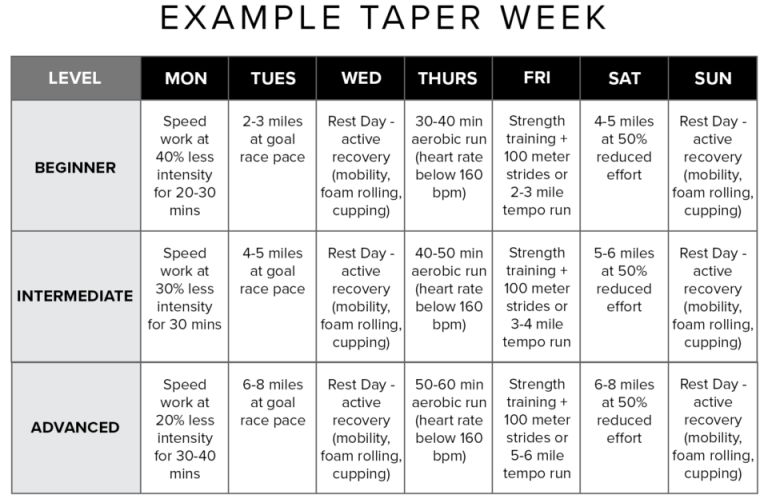Where Does Marathon Come from?
The term “marathon” originates from the legend of the Greek messenger Pheidippides. Pheidippides ran from Marathon to Athens to announce victory in the Battle of Marathon.
This 26. 2-mile race became known as the marathon and is a popular event worldwide, often associated with endurance and athleticism. From its humble origins in ancient Greece to its modern-day status as a challenging athletic competition, the marathon has captured the imagination of people across the globe.
Today, marathons attract runners of all levels, from casual enthusiasts to elite athletes, showcasing the endurance and determination required to conquer this iconic distance.
Origin Of The Marathon
Have you ever wondered about the origin of the marathon? The marathon, a race of 26.2 miles (42.195 kilometers), has a fascinating history that dates back to ancient Greece and continues to be celebrated worldwide as a symbol of endurance and perseverance.
The origin of the marathon can be traced back to the Battle of Marathon in 490 BC. This historic battle between the Greeks and the Persians played a pivotal role in shaping the ancient world and ultimately led to the creation of the marathon race.
A well-known legend surrounding the origin of the marathon is the tale of Pheidippides, an ancient Greek messenger. According to the legend, Pheidippides ran from the battlefield of Marathon to Athens, a distance of approximately 26 miles, to deliver news of the Greek victory.
The Battle Of Marathon
Exploring the origins of marathon racing takes us back to the famous Battle of Marathon, a pivotal event in ancient history that gave rise to this enduring athletic tradition.
Greek-persian Conflict
The clash between the Greek city-states and the Persian Empire escalated, leading to the Battle of Marathon.
The Role Of Athens
Athens played a crucial role in defending Greece against the Persians during the Battle of Marathon.
The Marathon Strategy
The strategic move of the Greeks to outmaneuver the Persians contributed to their victory at the Battle of Marathon.
The Legend Of Pheidippides
The Legend of Pheidippides: In the annals of history, one story stands out— the legend of Pheidippides. This ancient Athenian messenger played a pivotal role in the origins of the marathon race as we know it today.
Pheidippides: The Athenian Messenger
Pheidippides was a swift messenger known for his exceptional speed and endurance. He was entrusted with vital tasks, navigating treacherous terrains with unmatched agility and determination.
The Mythical Run To Athens
Pheidippides‘s most famed run was from the battlefield of Marathon to Athens, a distance of about 26 miles. This legendary feat became the inspiration behind the modern marathon race.
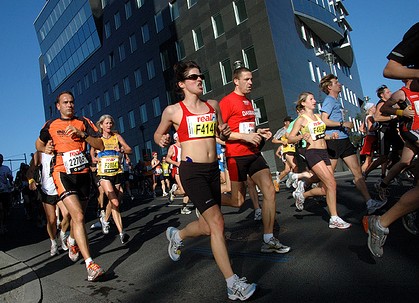
Credit: en.wikipedia.org
Popularity Of Marathons Today
In recent years, marathons have gained immense popularity, attracting thousands of participants of varied age groups and fitness levels. The surge in interest can be attributed to several factors, including the influence of the Olympic Games, the health and fitness movement, and the social aspects associated with endurance running events.
Influence Of The Olympic Games
The Olympic Games have played a crucial role in popularizing marathons. The historic significance of the marathon traces back to the legend of Pheidippides, a Greek messenger who ran from Marathon to Athens to deliver news of the victory. This historic event has immortalized the marathon as an ultimate test of human endurance and has inspired countless individuals to participate in such challenges.
Health And Fitness Movement
The growing emphasis on physical health and fitness has contributed significantly to the rise of marathons. With an increasing awareness of the importance of regular exercise, people are seeking opportunities to test their limits and engage in activities that promote overall well-being. Marathons offer a platform for individuals to set and achieve monumental fitness goals, which has garnered widespread interest and participation.
Marathon Races Around The World
Marathons are a testament to human endurance, bringing together athletes from across the globe to compete in one of the most grueling races known in the sporting world. From the historic Boston Marathon to the vibrant London Marathon and the dynamic Tokyo Marathon, each race possesses its own unique charm and challenges. Let’s delve into the world of marathon races and learn more about these iconic events.
Boston Marathon
The Boston Marathon, held annually on Patriot’s Day, is one of the oldest and most prestigious marathons in the world. Founded in 1897, it attracts thousands of elite runners and running enthusiasts from around the world to test their mettle on the hallowed course. Starting in Hopkinton, Massachusetts, the race takes participants through eight cities and towns before culminating in the heart of Boston. The iconic “Heartbreak Hill” presents a formidable challenge to the runners, testing their mental and physical strength.
London Marathon
The London Marathon is renowned for its vibrant atmosphere and scenic route, which showcases some of the city’s most iconic landmarks. Runners gather from all corners of the globe to take part in this celebration of endurance, determination, and community spirit. Starting at Greenwich Park, the route stretches along the River Thames, passing famous landmarks like the Tower Bridge, the Tower of London, and Buckingham Palace before finishing at The Mall. The London Marathon’s flat course encourages fast times, attracting elite athletes aiming to set new records.
Tokyo Marathon
The Tokyo Marathon is an electrifying race that combines ancient traditions with modern marvels. With its rising popularity, it has become one of the top marathons in Asia, attracting a diverse range of participants. The race route takes runners past Tokyo’s renowned landmarks, including the Imperial Palace, Asakusa Kaminarimon, and Tokyo Station. As the race unfolds, participants are enveloped in the excitement and energy of the city, fueled by the enthusiastic cheers of spectators lining the streets.
These marathon races not only test the physical limits of athletes but also provide a platform for personal growth, determination, and community camaraderie. Whether it’s the historic allure of the Boston Marathon, the lively spirit of the London Marathon, or the dynamic energy of the Tokyo Marathon, each race offers a unique experience that leaves a lasting impression on both the runners and spectators.
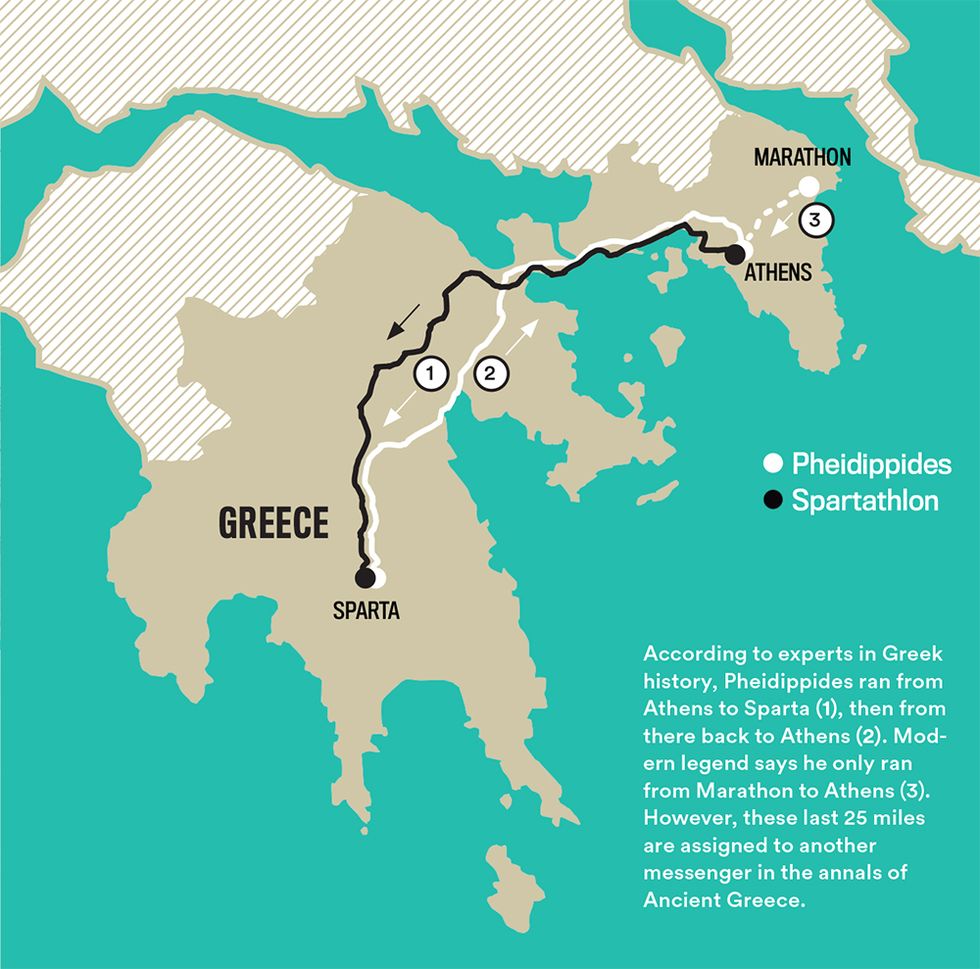
Credit: www.runnersworld.com
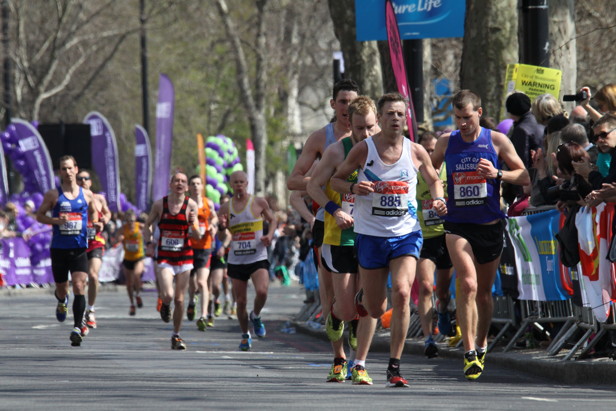
Credit: www.howitworksdaily.com
Frequently Asked Questions For Where Does Marathon Come From
What Is The Origin Of The Word “marathon”?
The word “marathon” originates from the Battle of Marathon in ancient Greece, where a messenger ran from Marathon to Athens.
How Long Is A Marathon Race?
A marathon race is 26. 2 miles long, or 42. 195 kilometers, and is considered the ultimate test of endurance.
When Was The First Modern Marathon Held?
The first modern marathon was held in Athens, Greece, in 1896 as part of the inaugural Olympic Games.
Conclusion
The origins of the marathon can be traced back to ancient Greece, with the legendary run of Pheidippides. The marathon has evolved over the centuries into a global sporting event, showcasing endurance and athleticism. Understanding its historical roots adds depth and significance to the modern-day marathon experience.

